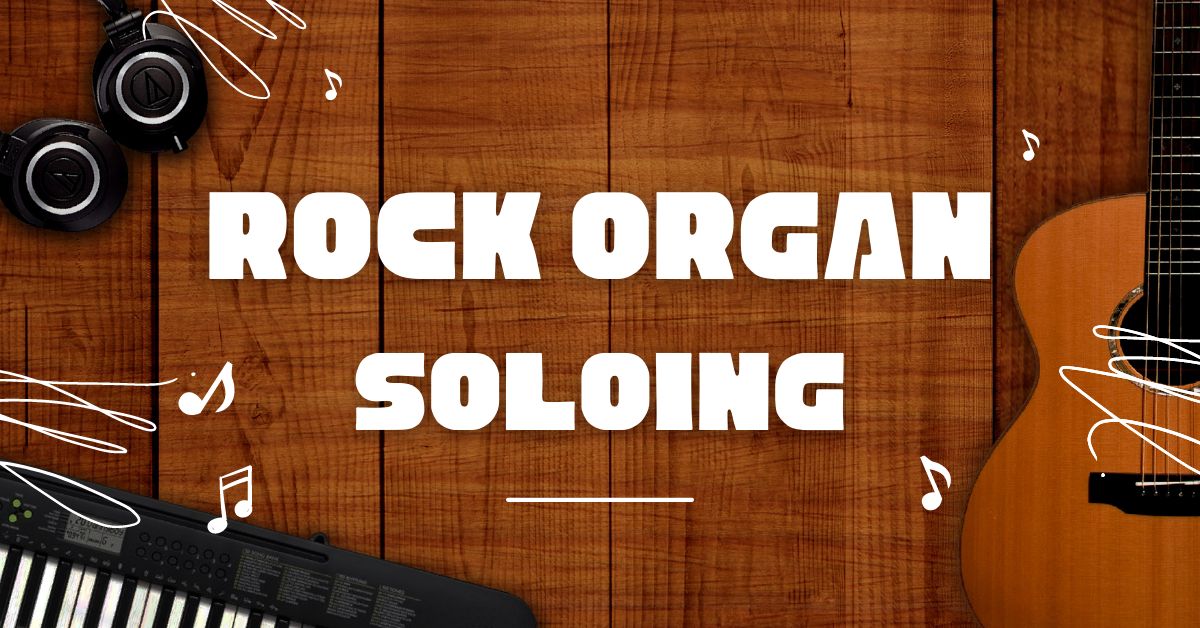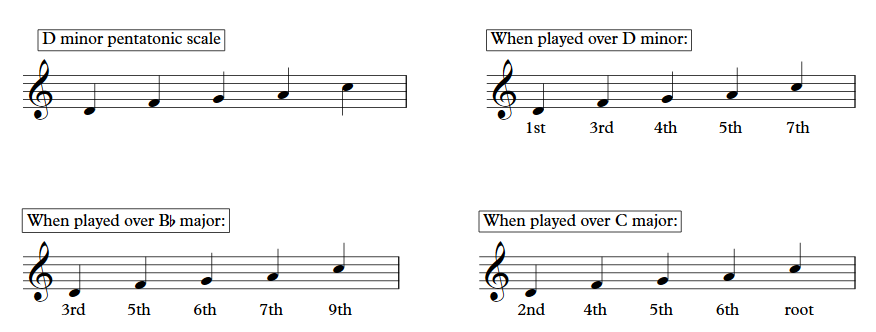Rock Organ Soloing

Rock organ soloing requires a different approach than jazz soloing. In the jazz context, keyboard solos are usually played at the piano and built around advanced harmonies and chord substitutions, various chord scales, quirky-syncopated rhythms, and left-handed comping. By contrast, rock keyboard solos are frequently played on a number of various keyboard instruments, including the organ. Also in contrast to jazz, rock solos are often built around simpler harmonies, one or two chord scales, and basic left hand structures. In this article we'll take a look at some tips for developing your rock organ soloing skills.
Rock Organ Soloing: Eric Clapton's "Layla"
We'll begin with a classic rock song - Eric Clapton's "Layla." The intro and chorus of this song are built around only 3 chords: D minor, Bb major, and C major. Here's the opening riff. It's usually played on guitar (in the original) but sounds awesome when played or doubled on rock organ.
These are also the same chords used for the chorus, including the gritty rock-heavy guitar solos (the chords for the verse are different). Since soloing over this tune usually happens on the chorus, we'll focus on these chord changes.
Rock Organ Soloing: What Does the Left Hand Do?
Ok, this is a pretty important tip. Real rock organs usually have two manuals, which means an upper and lower keyboard. Usually the organist will have one sound preset for one manual (perhaps a loud gritty sound for soloing) and another sound for the other manual (for comping - i.e., playing chords). However, most of us don't gig with real Hammond B3s, so we mere mortals end up using synthesizers with organ sounds. If this applies to you, here are some "do's" and don'ts":
- Don't comp with your left hand in the same way you would in a jazz piano context. The organ has a completely different sound than the piano. Chords need to be voiced for the organ's particular sound and range.
- Don't play bass lines with your left hand if you have a bass player in the band. Playing bass lines is his/her job. If there is no bass player then playing bass lines is fair game;
- Do play chords and comp with your left hand. But consider simple structures (like triads), register (too low or too high can sound bad), and sound/timbre (perhaps if you're playing a synth, this might mean splitting your keyboard to have a comping sound in the left hand and a lead/solo sound in the right).
Rock Organ Soloing: Less is More
Are there many scales you could use for soloing over these simple three chords? Yes. But does that means that some exotic scales are going to sound better or more advanced? No.
Allow me to introduce the minor pentatonic scale - 5 simple little notes. You can (and should) play this scale over all three chords in the chorus when practicing and soloing. After all, Eric Clapton does. (And if you want to use the blues scale, that will work and sound great, too). Below shows the D minor pentatonic scale and how it relates to each of the 3 chords.

